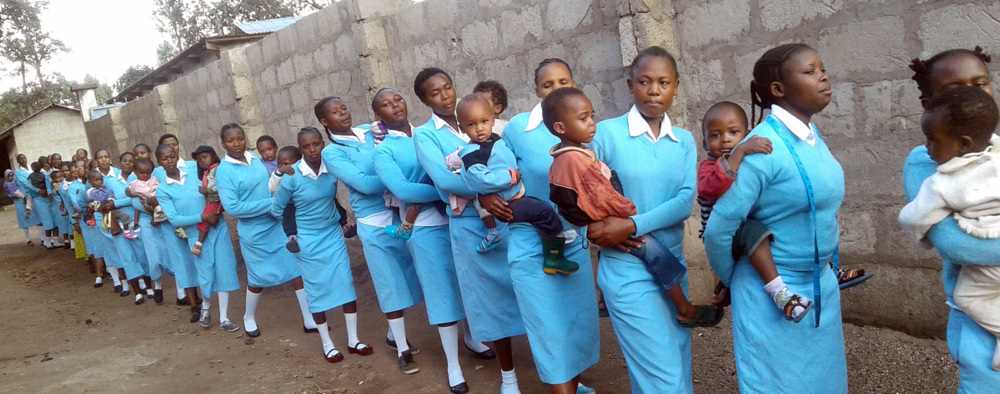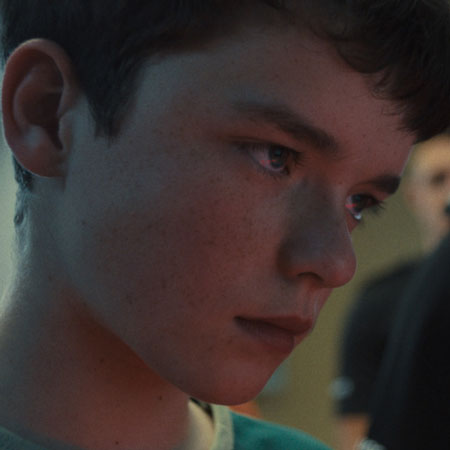
Justiça de gênero
Educação, Justiça de gênero
It’s 6:30 AM in Chipata, Zambia, and 7:30 AM in Arusha, Tanzania, 651 miles away. Two girls who have never met, Tika and Adiah,* are going about their morning routines.
In Chipata, Tika is making her bed and tidying up her section of the living quarters so that she can make it for her 7 AM English class, the first lesson of the day at Feni High School.
She shares the crammed living quarters with 20 other girls who, because of the distance from their homes to the school, have been allowed to lodge at the school on the condition that they provide for themselves all other material requirements. Several photos of a smiling little boy are stuck on the wall just above the pillow.
Tika is 25 years old, in 12th grade, was raped when she was 14, and has an eight-year-old son from the incident.
In Arusha, it is chaotic in the dorm at Faraja Young Women Organization, as 22 girls prepare themselves and their children for the day. The children do not seem to enjoy being woken up this early.
Nineteen-year-old Adiah is having a hard time getting her two-year-old twins (a boy and a girl) to stay in one place. She has to dress and prepare them for their day at the Early Childhood Development (ECD) program of Faraja’s Center before she starts her lessons at 8 AM. Adiah is studying catering and hairdressing and plans to open a restaurant and salon when she graduates.
[image_caption caption=”At Faraja Center in Arusha, Tanzania, young mothers take their children to the Early Childhood Development program and daycare before attending their own educational classes and vocational training. © Global Fund for Children” float=””]
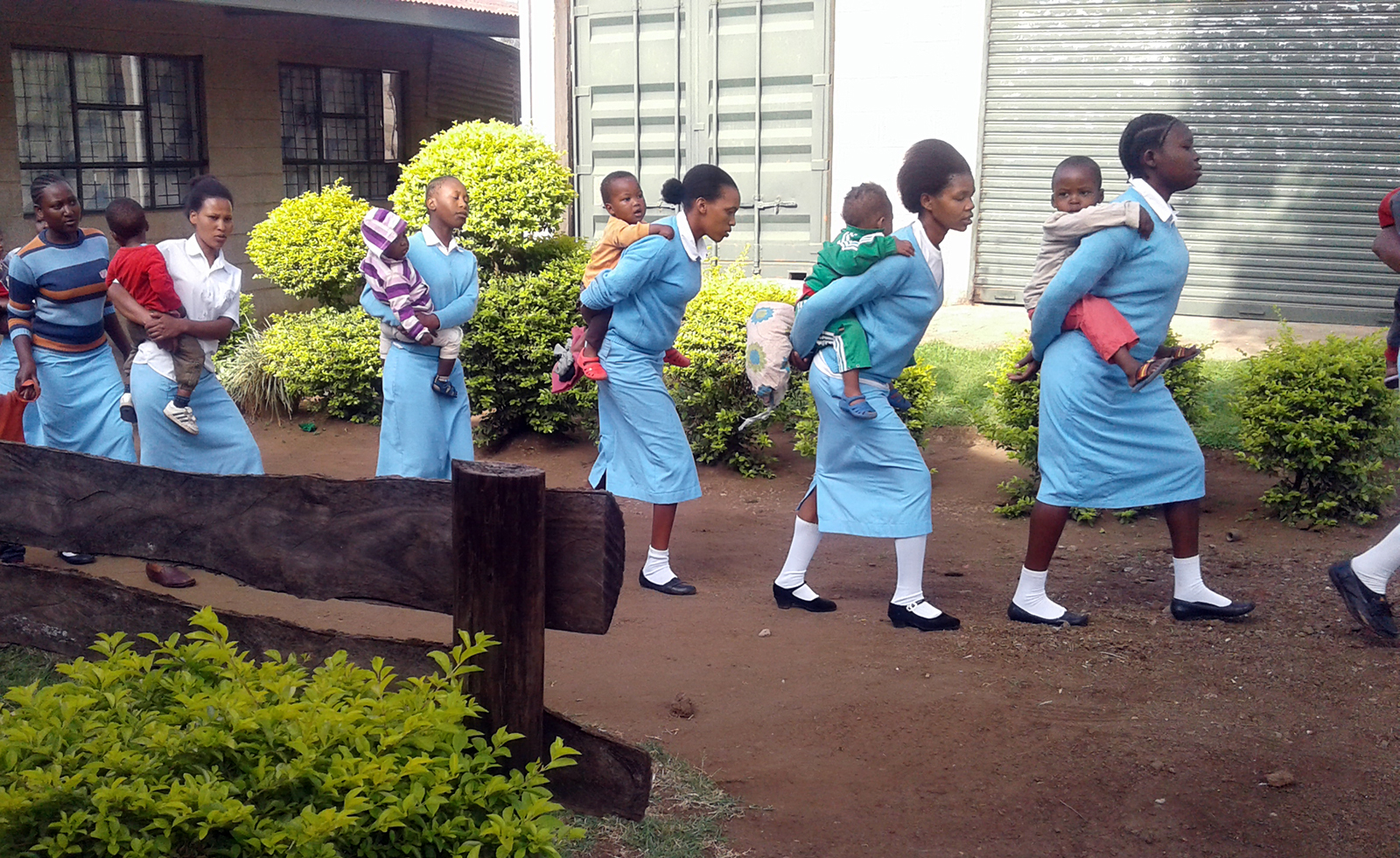
[/imagem_legenda]
One major determinant of the two young women’s paths post pregnancy is the social policy around school re-entry in the countries they live.
Tika was able to go back to school and continue pursuing her dream of becoming a nurse. Zambia has a re-entry policy that prohibits the expulsion from school of girls who became pregnant. Girls get maternity leave and are allowed to return to school after delivery of the child. So Tika picked up where she left off, albeit three years later, on her path of pursuing a career in nursing.
Adiah, on the other hand, had to shelve her aspirations of owning an accounting firm. She has quite a knack for numbers and still talks fondly about her dreams. But those are quite distant now. Though she desires to go back to formal schooling, she cannot, because Tanzania uses a morality clause to give schools the legal framework to expel students who become pregnant.
At a public rally in 2017, the president said, “In my administration as the President, no pregnant girl will go back to school … she has chosen that of kind life, let her take care of the child.” His speech removed any remaining discretion schools had over how they enforced the morality rule. This was affirmation of a practice that has existed in Tanzania since the 1960s.
An issue that is rarely highlighted in conversations about girls going back to school is their inability to find someone to care for their children during school hours.
Even when they reconcile with their families, which usually takes a long time and is conditional, the girls remain responsible for their children. In Zambia, less than 50% of girls who become pregnant resume school, despite the existence of the re-entry policy. Tika say she might have gone back to school earlier if she had a support structure that relieved her of worrying about who would care for her son.
[image_caption caption=”Mothers attending high school in Chipata, Zambia, get support for themselves and their children, thanks to COPECRED. © Global Fund for Children” float=””]
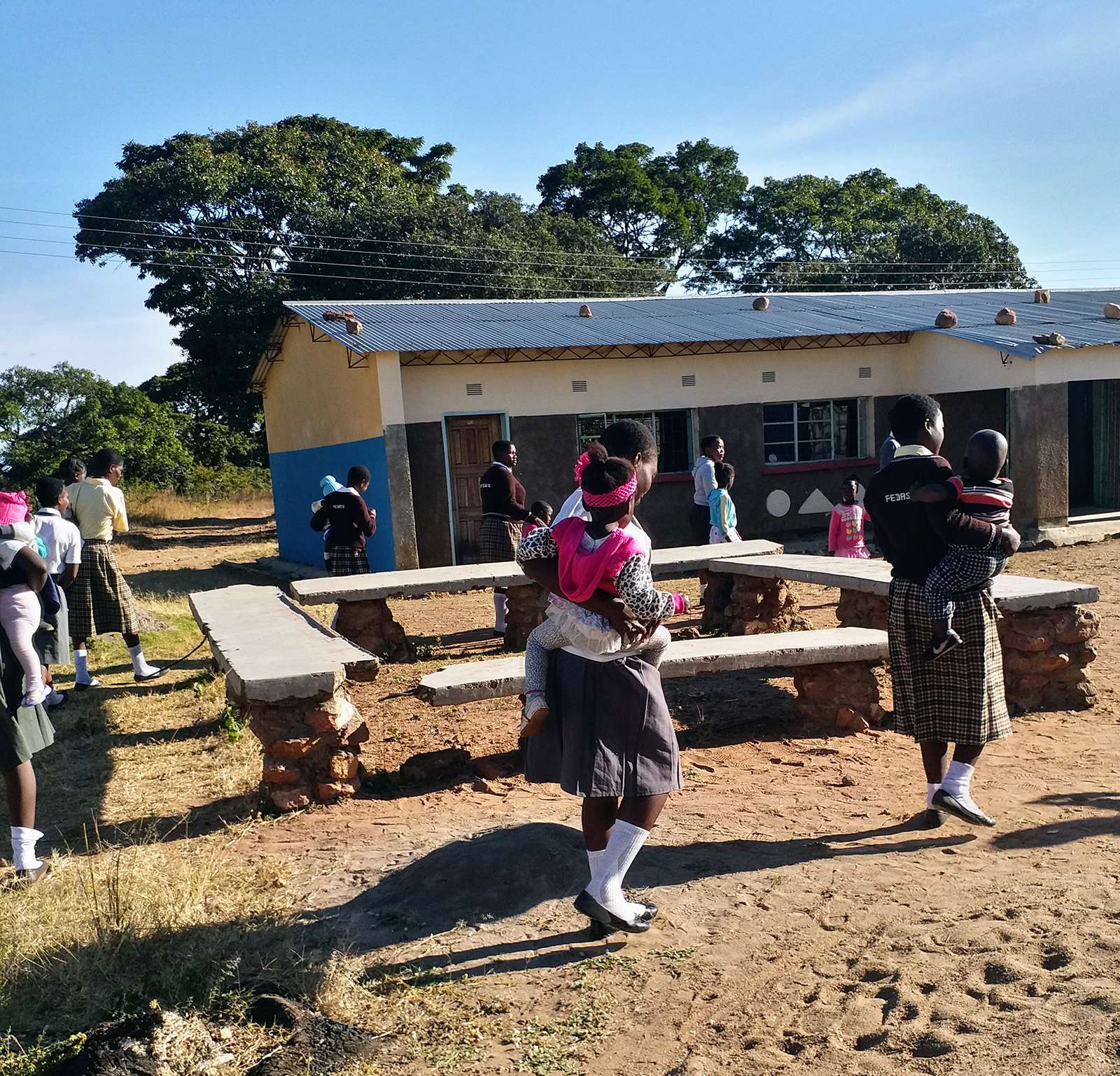
[/imagem_legenda]
Fortunately, these girls are not alone as they navigate their new circumstances. Creative GFC-supported grassroots organizations like Chimwemwe Organization for the Promotion of Early Childhood Rights Education and Development (COPECRED) in Zambia and Faraja Young Women Organization in Tanzania have come up with creative ways of ensuring that both young mother and child are taken care of.
Faraja Center offers temporary residence, education, and vocational training for vulnerable women and young mothers, many of whom have been kicked out of school because of their pregnancy.
Adiah was 16 and in her final year of high school when her life plans seemed to go up in flames before her eyes. Typical of many teenage pregnancy situations, she was chased from home and told to fend for herself.
Adiah was introduced to Faraja Center by a center alumna. The Center had to make an exception for her, as it was the first time it was accommodating a mother with two children. Adiah considers herself lucky. No public school is allowed to re-admit her, and private school is beyond her financial capacity.
[image_caption caption=”Moms and their young children prepare for a day of learning at Faraja Center. © Global Fund for Children” float=””]
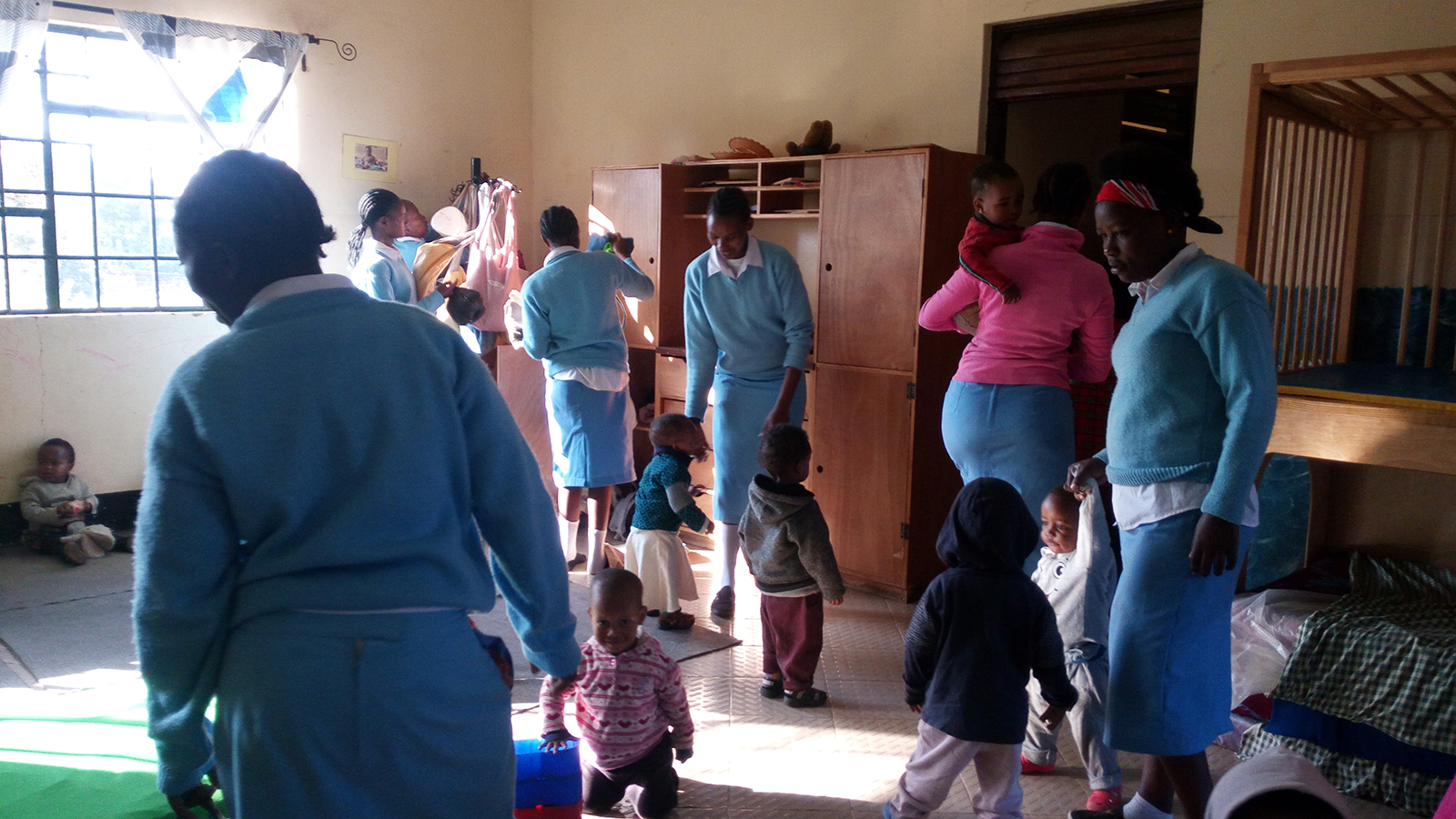
[/imagem_legenda]
Even though catering and hairdressing are a far cry from her preferred accounting qualification, Adiah has adjusted to her circumstances and is positive about the future. She says, “I like what I am learning about cooking and hair dressing and I plan to open salon and restaurant when I graduate from Faraja. My first priority now is my kids. I am working hard and want to save enough to make sure that they go to the best school.”
COPECRED has been supporting Tika from the time she returned to school. COPECRED works to improve the wellbeing of both adolescent girls and their children. The organization works with communities to provide comprehensive early childhood care and education for preschool-age children and prepares them for a successful transition to primary school while also providing a second chance at education for their mothers.
“Being with other girls in the dorm helps because I know that they really understand,” Tika says. “Not having to worry about my son’s safety and what he has eaten gives me peace of mind and helps me concentrate on my school.”
These organizations understand that the girls bear a lot of emotional burden from their experiences, and take steps help them. At Faraja Center, the girls go through weeks of orientation before lessons begin and receive counseling throughout the year. COPECRED hired a social worker situated at the school to help in navigating the school social environment and to provide the girls’ with a ready listening ear.
Early pregnancy is the end of the road for most girls like Tika and Adiah. Eliminating obstacles – such as providing safe, high-quality childcare – as they pursue their new vocations or education, on top of other financial support, might just be the last ingredient that makes the success recipe perfect. GFC stands behind great and innovative organization like COPECRED and Faraja Center as they continue to find the missing ingredients.
*Names have been changed.
